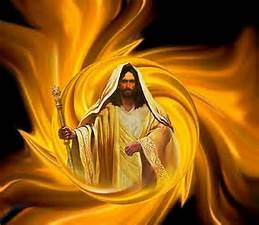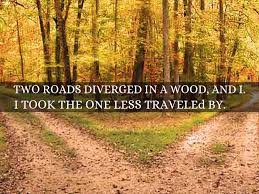 From this Gospel we sense that Jesus understands how difficult it is to wait. You can feel Him “chomping at the bit” as he says to this disciple: I have come to set the earth on fire, and how I wish it were already blazing!” If Jesus felt that way over 2000 years ago, how would He feel with the world situation today???
From this Gospel we sense that Jesus understands how difficult it is to wait. You can feel Him “chomping at the bit” as he says to this disciple: I have come to set the earth on fire, and how I wish it were already blazing!” If Jesus felt that way over 2000 years ago, how would He feel with the world situation today???
The Gospels and the Acts of the Apostles remind us over and over to have patience in waiting: wait for the Spirit, wait for the one who will baptize, wait for the fire of the Spirit. From the beginning of Jesus’ coming on earth He taught lessons in waiting. Mary and Elizabeth waited nine long months for the birth of their babes. The Holy Family waited three years in Egypt until it was safe to return to Nazareth. Remember Simeon’s prayer of gratitude (that we recite at Compline) upon seeing Jesus with Mary and Joseph in the temple. “Now, Lord – at last – I can die in peace for with my own eyes I have seen Your salvation.” Jesus waited 30 years to begin his public ministry, his baptism by his cousin John. He waited three days to respond to Lazarus’ sisters’ news that his friend had died. He waited 3 years for His Father to declare it was the right time: time for His last supper with friends, time for betrayal and crucifixion, time to rest in a borrowed tomb until he would be raised from the dead. He waited for the right time to reveal himself to Mary Magdalene in the garden and later to appear to the disciples and his mother Mary closeted in the upper room. He waited 40 days for the time to ascend and take his place at the right hand of his father.
And, what do we do? We tap our foot and mutter when we have to wait a few minutes in the grocery line, or for a red light to turn green, or for an elderly person to negotiate a curb or unfamiliar hallway; or move ahead in the food line at meal time; or hit “print” repeatedly on the computer thinking we can hurry it up. With a minor adaptation of words in the St. Louis Jesuit’s hymn TRUST IN THE LORD, we should be singing: “Wait for the Lord, you shall not tire; wait for the Lord, you shall not weaken. For the Lord’s own strength will uphold you, you shall renew your life and live.”
This Gospel is where Jesus reminds us that choosing to do good, to be good, requires on-going decision-making. To do the right thing, the good thing, won’t always be easy. Life isn’t conflict-free no matter how holy, easy-going or patient a person may be… living in a monastery can’t protect you. We’re all still human, with human limitations. But, we are followers of Jesus who said, “What makes you think I have come to establish peace? I tell you I have come to sow division.” He is alerting us to be prepared for difficult decisions; conflicts in life.
It’s good to get this reminder so when conflicts arise we don’t fret: “What did I do wrong? Why doesn’t God fix this situation?” Jesus is letting us know beforehand that He is right in the middle of the fray.” Remember He said: “I have come to set the earth afire.” He’s is telling us that when we make the decision to follow him, we may face opposition from some quarters, perhaps even from our peers, our family or friends. He probably cheers us on when conflicts arise and He can foresee the peace of reconciliation coming down the pike. Figuratively, if we engage the faucet, turn the nozzle, we have the hose that can put out the fire between us. The ashes will remain. Ah, but, out of the ashes will come new life: green plants, colorful flowers, and, yes – peace. Our choices to act or bite our tongue, cool our jets and exercise patience do shape our future. [If you are interested: this month’s Reader’s Digest has several stories illustrating how insightful, caring mentors change children’s lives.]
At the University’s Opening Mass on Monday, President Senese preempted one of my choices for this reflection when he quoted Robert Frost’s poem: “The Road Not Taken.” You can probably recite some lines from your 8th grade memory: (edited here for my purpose)
 Two roads diverged in a yellow wood,
Two roads diverged in a yellow wood,
And, sorry I could not travel both and be one traveler,
Long I stood and looked down one as far as I could
Then took the other, as having perhaps the better claim…
Oh, I kept the first for another day!
Yet knowing how way leads on to way,
I doubted if I should ever come back.
I shall be telling this with a sigh
Somewhere ages and ages hence: Two roads diverged in a wood, and I —
I took the one less traveled by,
And that has made all the difference.

